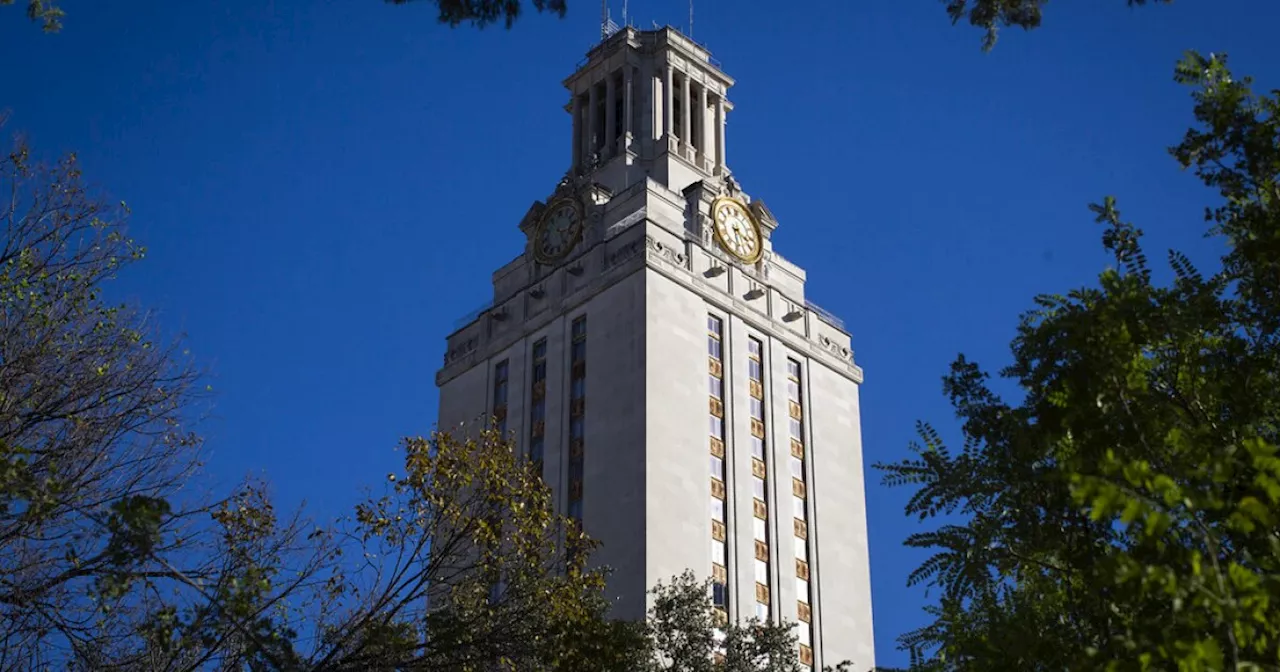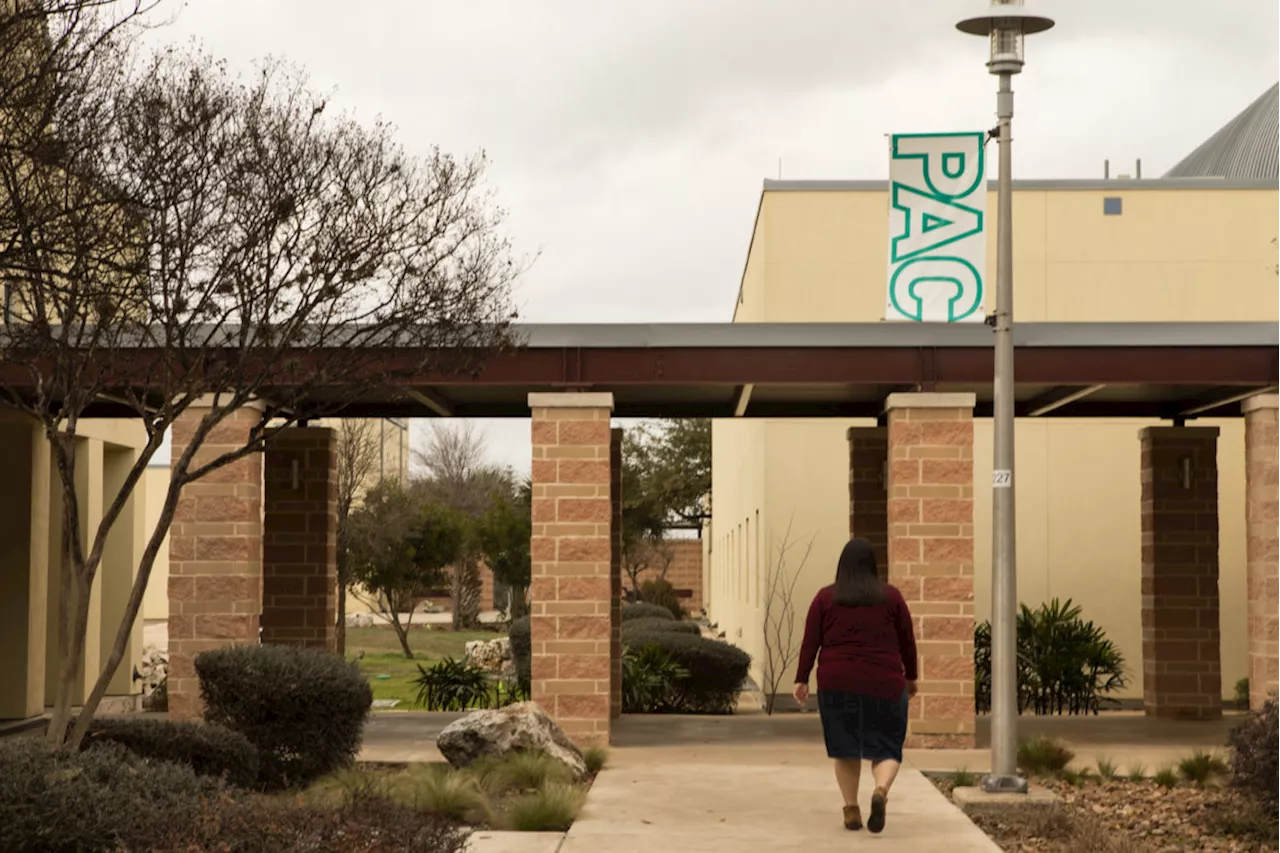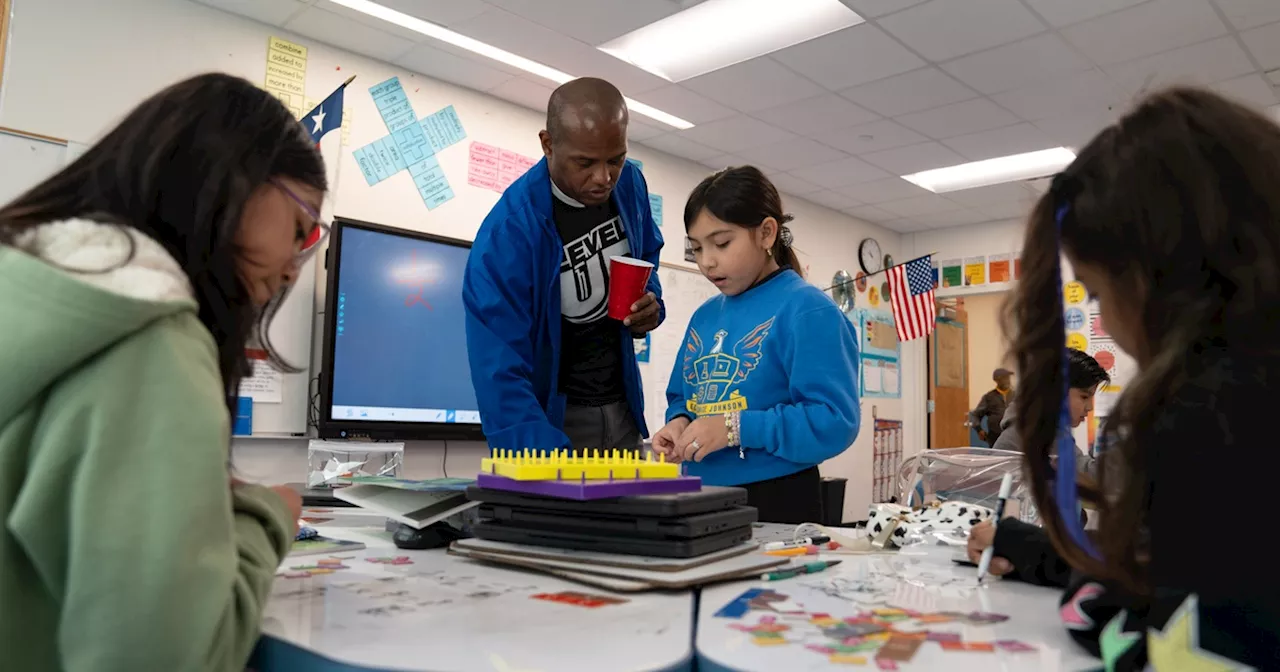The new state law prohibits public universities from having diversity, equity and inclusion programs. Students say schools are overcorrecting.
Aaliyah Barlow helps to lead the Black Student Alliance meeting at the University of Texas at Austin on Feb. 19, 2024.As president of the University of Texas at Austin’s Black Student Alliance, a student group, the junior is in charge of securing funding for three dozen of her peers to attend an annual conference for Black student leaders within the Big 12 Athletic Conference.
Since the law went into effect at the beginning of this year, UT-Austin has closed a beloved multicultural center that housed several student organizations sponsored by the school and ended a scholarship program for undocumented students. This month, the undergraduate college canceled a lecture on finding mentors in higher education through the lens of the LGBTQ student experience after university lawyers argued it could be construed as diversity training.
UT-Austin officials have provided little information to students and faculty who have demanded more transparency about how they are interpreting the law. They did not respond to interview requests or a list of written questions. Over the past few years, DEI offices have become increasingly common at universities. They are typically charged with boosting faculty diversity and helping students from all backgrounds succeed.
In preparation for the law’s implementation, UT-Austin administrators shared with students and employees guidance from the University of Texas System, which oversees the school, about what is permitted under the ban. For instance, system guidance states that while student organizations are exempt from prohibitions, some of those groups may shut down based on the extent of institutional support they receive from the university.
Guadalupe stumbled into the program shortly after her laptop died three years ago, a few weeks into her freshman year. She was able to borrow a laptop through Monarch’s technology lending library until she saved enough money to buy a new one. Ever since, she’s worked with the program to help other students like her stay in school and graduate.
In late January, a group of university department chairs sent a letter to UT administrators asking for clarity about the decision to end the Monarch Program. Home to six student groups — Afrikan American Affairs; the Asian Desi Pacific Islander American Collective; the Latinx Community Affairs; the Native American and Indigenous Collective; Queer and Trans Black Indigenous People of Color Agency; and Students for Equity and Diversity — the center served as a meeting place for students of various underrepresented backgrounds and identities.
When students returned to campus from winter break, the space was still open for students to work in, but the staff was gone and the center’s name was removed. Since the ban does not apply to student organizations, the culturally specific groups once housed within the center were allowed to continue operating, but only if they disaffiliated from the university and stopped receiving financial support from the school.
“It's such a big accomplishment when you come to UT, and maybe as a first generation student or a child of immigrants … and be away from home for the first time,” Tadikonda said. “It breaks my heart that now we have to work 100 times harder just to give people what they deserve, to give them the recognition that they might not get in a university-wide graduation.”
“To have this happen four years later, and not be able to have a proper send-off from college for these degrees that we've worked so hard to earn, it's unimaginable,” she said. “This senior class deserves to be celebrated.”Paige Schilt, a former lecturer at UT-Austin, was thrilled when she was invited by the university’s undergraduate college to give a talk this semester about how to find a mentor as a student navigating higher education for the first time.
Schilt said she tried to work with the undergraduate college to shift the lecture's format and instead give a reading from her memoir in progress in the hope of appeasing the university’s lawyers, but was unsuccessful. Ultimately, her talk was replaced with another lecture.
Indonesia Berita Terbaru, Indonesia Berita utama
Similar News:Anda juga dapat membaca berita serupa dengan ini yang kami kumpulkan dari sumber berita lain.
 The Austin Chronic: How Worried Should Cannabis Users Be Over Paxton Suing Austin?A Q&A with Congressman Greg Casar
The Austin Chronic: How Worried Should Cannabis Users Be Over Paxton Suing Austin?A Q&A with Congressman Greg Casar
Baca lebih lajut »
 Lawyer accuses UT Austin of violating free speech rights of students who protested TAs' removalThe teaching assistants sent a message with mental health resources to Arab and Muslim students seeking support amid the war in Gaza. The lawyer said four students face disciplinary action for demanding they be reinstated.
Lawyer accuses UT Austin of violating free speech rights of students who protested TAs' removalThe teaching assistants sent a message with mental health resources to Arab and Muslim students seeking support amid the war in Gaza. The lawyer said four students face disciplinary action for demanding they be reinstated.
Baca lebih lajut »
 Austin ISD offering eclipse glasses to all students and staffAustin ISD is gearing up for the total solar eclipse on April 8, and that means offering free eclipse viewing glasses to all students and staff.According to a n
Austin ISD offering eclipse glasses to all students and staffAustin ISD is gearing up for the total solar eclipse on April 8, and that means offering free eclipse viewing glasses to all students and staff.According to a n
Baca lebih lajut »
 TxDOT seeks public input for enhancing Austin-San Antonio linkage: open houses announcedAUSTIN, Texas (KEYE) -- The Texas Department of Transportation is asking for the public’s input when it comes to ways of better linking Austin to San Antonio.Tx
TxDOT seeks public input for enhancing Austin-San Antonio linkage: open houses announcedAUSTIN, Texas (KEYE) -- The Texas Department of Transportation is asking for the public’s input when it comes to ways of better linking Austin to San Antonio.Tx
Baca lebih lajut »
 Many Texas community college students who transfer don’t finish their degrees, study saysA report on college transfers released Wednesday found most Texas community college students who transfer to a four-year university don’t graduate.
Many Texas community college students who transfer don’t finish their degrees, study saysA report on college transfers released Wednesday found most Texas community college students who transfer to a four-year university don’t graduate.
Baca lebih lajut »
 Some Texas schools try new way to teach math to studentsPolicy experts worry students will fall short of the state's future workforce needs. Educators hope the new curriculum will help them.
Some Texas schools try new way to teach math to studentsPolicy experts worry students will fall short of the state's future workforce needs. Educators hope the new curriculum will help them.
Baca lebih lajut »
